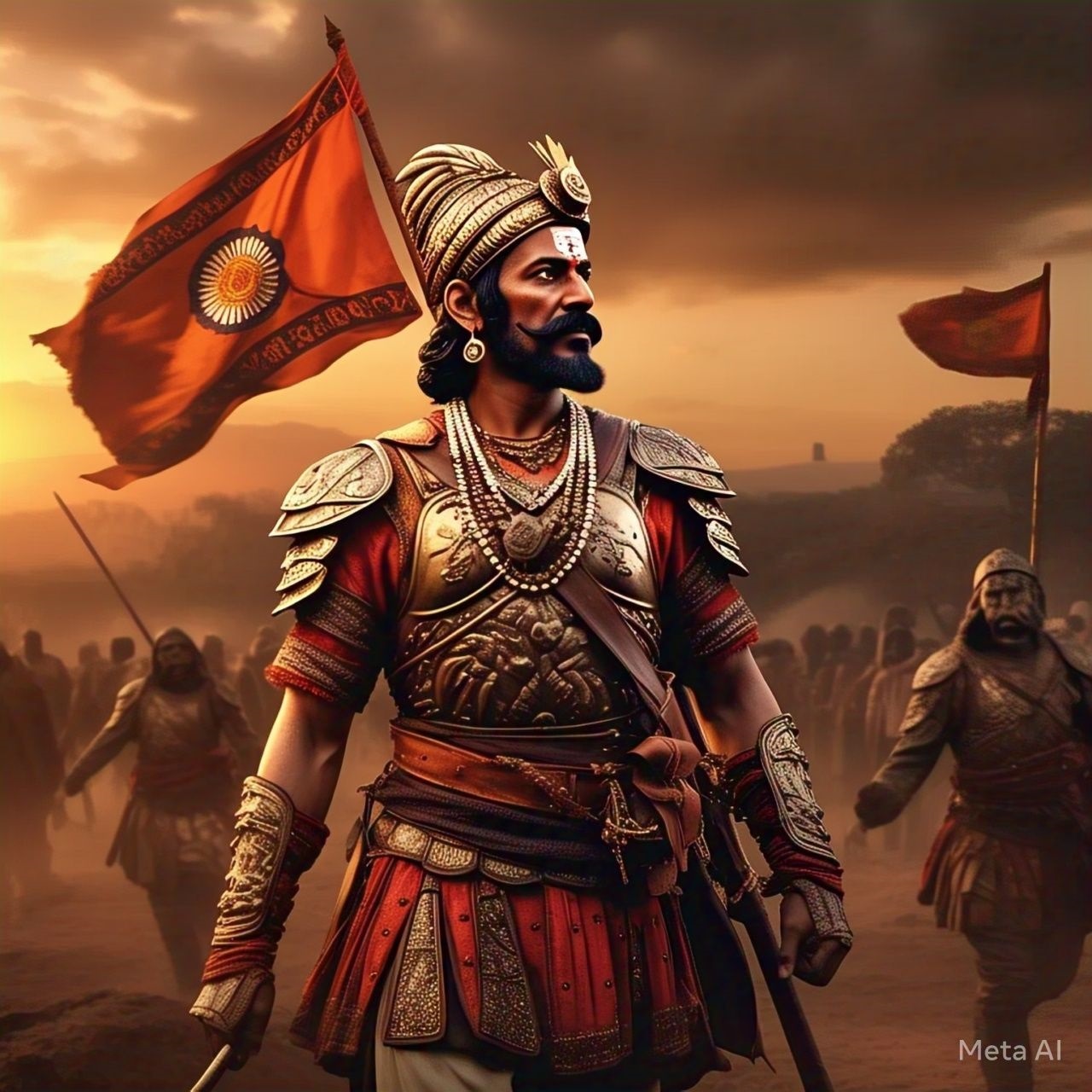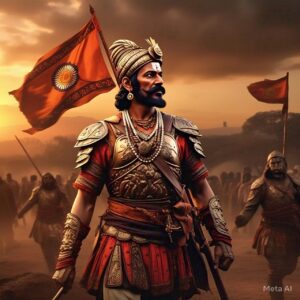
The film Chhaava leans heavily on the grandiose mythologization of historical figures, particularly Chhatrapati Sambhaji Maharaj, the son of the revered Chhatrapati Shivaji Maharaj. Directed by Laxman Utekar, the film tries to capture the essence of the Maratha king’s legacy but ultimately drowns under its excessive and dramatic portrayal. While Chhaava offers a spectacular performance by Vicky Kaushal in the titular role and an equally commendable turn from Akshaye Khanna as the antagonist, the film fails to create the impact it promises.
Unmatched Performances But Lacking Substance
The film opens with the promise of grandeur, with a focus on Chhatrapati Sambhaji Maharaj as a valiant warrior and the historical struggles of the Maratha Empire against Mughal forces. But, despite its hefty budget and impressive visuals, Chhaava is burdened by a screenplay that is excessively loud and lacks nuance. The characters are presented in such a way that historical accuracy often takes a backseat to exaggerated heroism.
Vicky Kaushal’s portrayal of Sambhaji Maharaj is one of the few highlights of the film. He brings a fiery intensity to the role, roaring commands to inspire his warriors with his iconic “Jai Bhavani!” However, the battle cries and moments of heroism seem forced, at times leaning more towards theatrical dramatization than a genuine reflection of history.

The Flaws in Storytelling and Character Development
At its core, Chhaava feels like an unbalanced attempt to portray historical events through a lens of exaggerated heroism. The screenplay, written by five writers including the director, gives Kaushal ample space to showcase his physicality and intensity. However, this freedom often leads to over-the-top moments that undermine the authenticity of the narrative.
One of the most glaring issues is the film’s inability to separate believable historical accounts from cinematic grandstanding. While the intention may have been to honor Sambhaji Maharaj’s legacy, the result is a spectacle that is often more concerned with sensationalism than with delivering a grounded portrayal of the king’s struggles.
The action sequences, though visually stunning, feel hollow due to their lack of emotional depth. The heroics are depicted as larger-than-life, with Sambhaji effortlessly defeating enemies in one-sided battles. The film fails to explore the complexity of his character beyond the typical tropes of bravery and righteousness.
Historical Inaccuracy and Excessive Drama
Despite the powerful performances, Chhaava suffers from a lack of depth and historical accuracy. The battles are loud and relentless, with a heavy emphasis on gory action rather than on the intricate politics and personal struggles of the time. The film’s portrayal of Sambhaji’s army fighting the Mughal forces feels more like a series of dramatic set pieces than a reflection of the historical challenges faced by the Marathas.
The antagonistic portrayal of Aurangzeb (played by Akshaye Khanna) as a ruthless, aging emperor further highlights the film’s tendency to simplify complex historical figures into mere caricatures. His performance, while solid, also succumbs to the film’s larger-than-life approach.
A Missed Opportunity in Character Development
Although Chhaava features several strong characters, including Yesubai (Rashmika Mandanna), Sambhaji’s wife, and other key figures like Hambirao Mohite (Ashutosh Rana) and Kavi Kalash (Vineet Kumar Singh), they fail to rise above the loud, bombastic narrative. Even the women in the film, despite having significant roles, remain one-dimensional and don’t receive the screen time they deserve to make a lasting impact.
Akshay Kumar and Vicky Kaushal Deliver Stellar Performances in a Compelling Film
In the realm of Bollywood, performances often make or break a film, and Chhaava has become a perfect example of how strong acting can elevate a story, even when other elements might falter. Featuring two of the industry’s finest actors, Akshay Kumar and Vicky Kaushal, the film delivers notable performances that manage to captivate the audience, even when the film itself faces some narrative challenges.
Vicky Kaushal: A Performance to Remember
Vicky Kaushal, who plays the titular role of Chhatrapati Sambhaji Maharaj, brings a fierce intensity to his portrayal of the historical figure. Known for his versatility, Kaushal expertly transitions from moments of raw aggression to tender emotions, all while maintaining the dignity of the character. The depth he brings to Sambhaji’s struggle, his fierce loyalty to his people, and his determination to honor his father’s legacy are strikingly conveyed through his performance.
From the film’s opening sequences, Kaushal’s presence is powerful. His portrayal of Sambhaji, as a leader who is both strategic and passionate, resonates deeply with the audience. The way he commands his troops with a roar of “Jai Bhavani” evokes a sense of pride, mirroring the real historical figure’s larger-than-life legacy. What sets Kaushal apart is his ability to portray the complexities of Sambhaji – a man of incredible courage, yet one burdened with immense responsibility and personal loss.
Akshay Kumar: A Villain Who Adds Depth to the Story
On the other side, Akshay Kumar, who plays Aurangzeb, presents a villainous character with equal levels of nuance and intensity. Aurangzeb, as portrayed by Kumar, is not merely an evil antagonist, but a ruler who, although ruthless, is driven by his own vision of what the empire should be. His performance steers away from the typical villain stereotypes, offering a more layered interpretation. Kumar masterfully captures the emotional conflict within Aurangzeb, especially his inner turmoil as an aging ruler trying to maintain control over his empire.
Kumar’s portrayal brings a balance of menace and vulnerability to the character, making him more than just a two-dimensional villain. The dialogues, his intense gaze, and the way he manipulates situations highlight his strong grasp of the character’s complexities. His presence on screen provides a strong counterpoint to Kaushal’s performance, which is essential in a historical drama where both the hero and villain’s power dynamics need to be palpable.
A Film That Showcases Both Performances
While both Kaushal and Kumar shine individually, Chhaava as a film, too, does a commendable job of capturing the essence of an era. The production design, action sequences, and the overall cinematography come together well, creating a visual spectacle. However, the film’s narrative occasionally leans too heavily into dramatic exaggeration, overshadowing some of the subtle emotional moments. Despite these flaws, the strength of the performances by both Kaushal and Kumar is enough to carry the film forward and keep the audience engaged.
The screenplay, though intense and sometimes over the top, still manages to highlight the stark contrast between the bravery of the Maratha king and the ruthless ambition of the Mughal emperor. This dynamic, brought to life by two stellar performances, ensures that Chhaava remains an engaging watch.
Conclusion: A Glorious but Overwhelming Epic
In visual terms, Chhaava offers stunning imagery and impressive action sequences. The production design and cinematography are commendable, but the film’s excess in dramatization ultimately hampers its potential. While the performances by the lead actors are remarkable, the lack of subtlety in the screenplay and its over-reliance on spectacle make it a tiring watch.
In the end, Chhaava struggles to find the right balance between honoring history and indulging in cinematic heroism. If it doesn’t completely fail, it’s largely due to the stellar performances by Vicky Kaushal and Akshaye Khanna, who manage to shine through the overwhelming noise.
